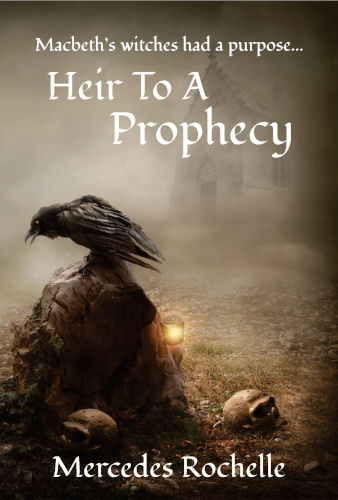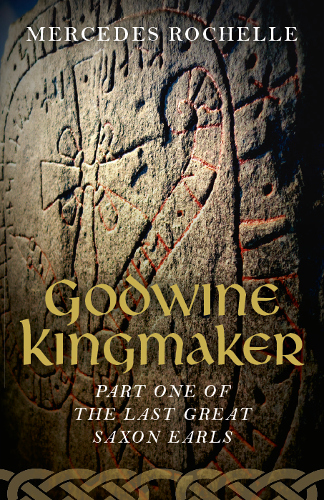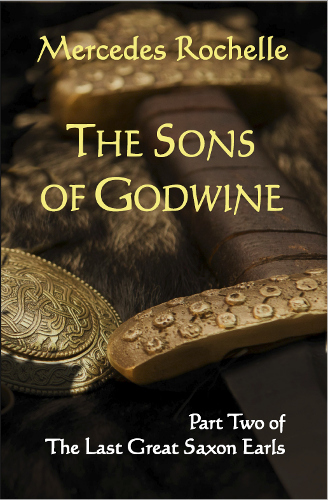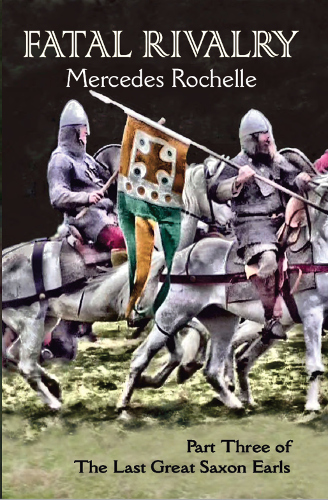Interview – Mercedes Rochelle
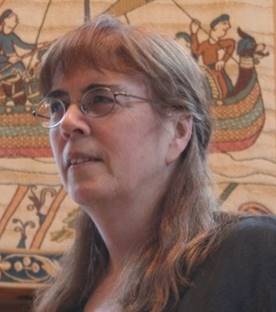
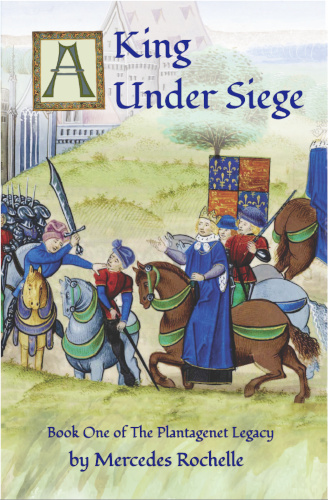
When did you start writing novels, what moved you to start writing?
In my college days, I was encouraged by a writer boyfriend to start my first novel; it was to be a joint project but I soon took off in a different direction than he had intended. I was hot on the trail of a question I had been carrying around concerning Macbeth and the Banquo/Fleance subplot. What happened to Fleance after his father was killed? My research took me on a merry chase, and ended up as my first novel, HEIR TO A PROPHECY. Little did I realize that I had ventured into the Historical Fiction genre.
In what genres do you write? Do you plan writing in other genres?
To this day I write Historical Fiction. I can’t see doing anything else because, frankly, the research is my favorite part of the project—not to mention that fact that the plot is already in place.
Tell us about your novels. Why should everyone buy them?
I write about medieval Britain. My first four novels take place in the 11th century, from the Danish conquest to the Norman conquest and beyond. I was deeply taken with the story of the Godwine family, the most powerful clan in Anglo-Saxon England who became a historical cipher in a mere two generations—even though Godwine’s most famous son became King. Now I have moved on to the 14th century to explore another Shakespeare character I’ve been carrying around for years: Richard II. As many historians believe, his usurpation set the stage for the devastating Wars of the Roses. The story is incredibly complicated.
What is your all time favorite novel/book? What makes it special?
THE THREE MUSKETEERS was a pivotal book for me; I was so taken with it I learned French so I could read Dumas in his original language. At this point I was beginning to recognize Historical Fiction as a genre and see its potential, though truly I think Dumas was a master at characterization and I fell in love with his heroes.
Tell us a bit about your writing process.
I write in spurts. I have a laptop set up so I have to stand to write, and I’m up and down during the whole session. During my first draft, I surround myself with my research books and go back and forth between them, piecing together each event in order (the sources usually conflict). My only purpose is to get the structure in place—the skeleton. It isn’t until the second draft that I put muscles onto the story. On my third draft I’m adding the flesh, and on the fourth draft I’m getting rid of all the pimples and imperfections.
What author would you love to have dinner with?
I would love to chat with Arthur Conan Doyle. Since he is Sherlock Holmes, how much more brilliant can a man get?
Tell us about your hobbies and passions other than writing.
I have time for little else than my gardening! It helps to empty out my brain and give me good therapy.
We have many followers who would like to start writing a book or are already writing their first novel, any advice for these brave people?
While writing that first draft, don’t get stuck on little details. I think that’s where writer’s block come into play. Push through, even it means stopping in the middle of a difficult scene and starting on the next chapter (make yourself a note and then move on). By the time you get back to it in the second draft, many of your problems will have worked themselves out. Characters have a way of dictating their own responses, once they are developed.
How often do you write, daily, every other day or?
The weather dictates my writing schedule (and my job; I sell Real Estate). I get much more writing done in the winter when I’m stuck in the house. On the other hand, during the Spring, I’m outside in the garden! If I miss a day or two, I don’t fret. Sometimes getting away from it helps.
Do you keep a notebook with ideas for your novels? If so do you carry the notebook with you so you won’t forget any ideas?
Since history dictates my plotlines, I don’t need a notebook. Many of my ideas insinuate themselves while I am writing; often I don’t know where they come from.
How important is it to have your facts right and are there any instances when you bend history to fit your story?
The farther back you go in history, the more you have to make things up! Even in the 14th century, I discovered that nothing can be relied upon. Too many chroniclers had an agenda, and in the case of usurpation, the winner calls all the shots. So the best we can do is sort through all the conflicting evidence and come up with a story that makes sense. Once in a while I will choose one of the more far-fetched angles if it makes for a more exciting outcome; after all, I am writing fiction! A comment in the “author’s notes” seems appropriate if I stray too far from the norm. For instance, right now I am struggling with Richard II’s death. There was a persistent belief that he was whisked away to Scotland and spent the next 20 some-odd years living in exile there. I’m not sure I can resist this subplot—it’s too delicious (I’ll know when I get there!).
What are you reading at the moment?
Sometimes it helps to go back to the “basics” and I’m reading THE PERSIAN BOY (by Mary Renault) for the first time in, oh, at least 30 years. I remember being particularly taken with her story of Alexander, and I can see why. It’s interesting how a first person POV can seem so intimate and yet so far away; so much of the book happens outside of his presence that we, as a reader, almost feel left out like he does.
How is it to be an author in your country? Do you have a good support from the local public?
I live in a rural area (in the States), so we don’t even have a bookstore nearby. If it weren’t for the internet, I think I’d be lost!
Certainly you have had some interesting episodes as an author, fans related or others, share one of them with us.
For the last four years I have been exhibiting at an annual Viking Festival. Last year, four people came back just to get another book from me. That was the first time I really felt like I was connecting with my readers. Let me tell you, it’s all worthwhile!
A final message for our circleofbooks.com readers.
My vocation, with Historical Fiction, is to connect readers with history in a way that’s painless, meaningful, and compelling. A tall order, indeed! Fiction writers have the freedom denied to historians: we must figure out when, why, and how something happened, whereas the historian can only tell us what. It’s both a blessing and a curse; sometimes for the life of me I can’t determine what made a person act the way he/she did. But of course, that’s the challenge that keeps me going.
Thank you Mercedes Rochelle. We at circleofbooks.com wish you much success!
Click here to visit the author page here on circleofbooks.com
